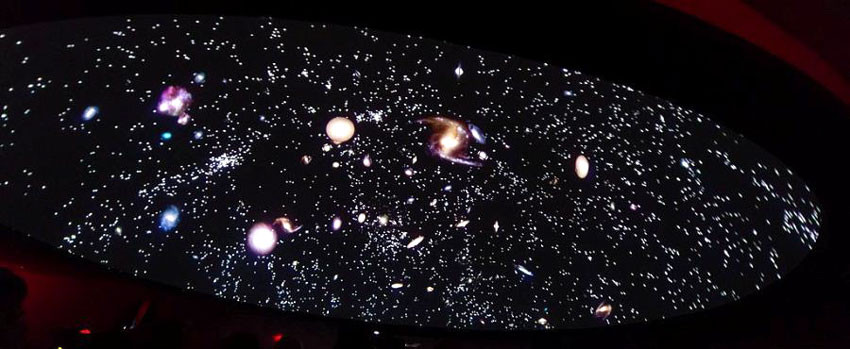In today’s world, we have lost connection with the stars and few people only are able to find the most popular constellations in the night sky. However, there are also people who want to learn more about the planets and the stars and find the secrets of the Universe. The planetariums provide one such opportunity.
The idea of creating planetariums in Bulgaria emerged after the beginning of the Space Age in 1957. The device that designs the night sky and the movements of the planets over the semispherical cupola of the planetarium is also called planetarium, Associate Professor from the Institute of Astronomy of the Bulgarian Academy of Sciences Dimitar Kolev who has worked for 40 years at the National Astronomical Observatory in Rozhen told Radio Bulgaria.
The first planetarium in Bulgaria was homemade. It was unveiled in the town of Dimitrovgrad by amateur astronomer Milko Milanov in 1962.

He used a copper sphere equipped with a powerful lamp and several film strips showing the picture of the night sky. Ten years later the device was replaced by a planetarium produced by Carl Zeiss Company and later another 5 or 6 devices were bought for the purposes of the Bulgarian planetariums.

There are several planetariums in Bulgaria. They are located in the towns of Dimitrovgrad, Smolyan, Varna, Yambol, Stara Zagora and Gabrovo. The first digital planetarium was unveiled in Kamchia resort complex near the coastal city of Varna. A digital planetarium was also built in Bulgaria’s second- biggest city Plovdiv in 2015. However, the guests and the residents of Bulgaria’s capital Sofia were deprived of the opportunity to enjoy stellar performances. Sofia is the only capital in the EU without a big public planetarium.
Back in 1960, the Bulgarian Council of Ministers issued an order and obliged the Sofia City People’s Council to build a planetarium with the assistance of the Bulgarian Academy of Sciences. However, no reaction followed the decree. Twelve years ago, young Bulgarian architect Elena Daskalova from the town of Smolyan came up with the proposal for the construction of a planetarium in Sofia on a piece of land owned by the Bulgarian Academy of Sciences which had to be based on the already existing project. Unfortunately, the necessary financing was not found and inaction continues, Dimitar Kolev notes.
The story of the construction of a planetarium in the coastal city of Burgas is similar. The project was approved and adopted 7 years ago. According to latest information, an area for public access has been launched near the Marine Station and perhaps a small eight-meter tall building with single-projector planetarium will be built there as well.

Planetariums are very useful inventions, because they exemplify the space objects and their movement which is very interesting to people. They have been useful educational and since recently entertainment centers due to the computer-generated programs. They can also present in a similar way not only astronomical programs, but also movies and even literature works. Currently, astronomy is not part of the curriculum of the Bulgarian schools and we have been witnessing how theories such as the flat-earth theory have been flourishing recently, Dimitar Kolev said further.
English version: Kostadin Atanasov
Photos: archiveBulgarians are among the few peoples in the world with a holiday dedicated to spirituality—the National Awakeners' Day. We celebrate it every year on November 1 to honor those who awakened the nation to freedom, knowledge and dignity during the dark..
St. Demetrius Day – October 26, is celebrated throughout Bulgaria, and his relics, kept in Thessaloniki, are a constant object of veneration by Bulgarians who often travel to Northern Greece. In the folk calendar, St...
The Anthem of Independence was performed for the first time on September 22, 1908, in the Black Sea city of Burgas. The author of the melody and lyrics—military bandmaster Georgi Shagunov—noted on the title page of the score that the anthem was..

+359 2 9336 661
